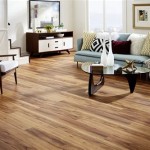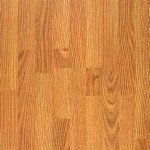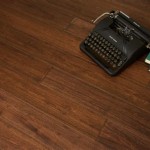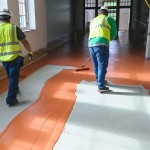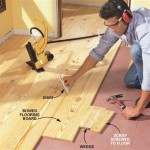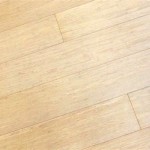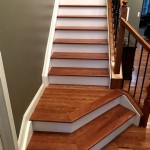Vinyl Plank Flooring Versus Engineered Hardwood: A Comprehensive Comparison
When choosing flooring options, vinyl plank flooring and engineered hardwood are two popular contenders. Both offer distinct advantages and drawbacks, making it crucial to understand their differences to make an informed decision. This guide delves into the essential aspects of each material to help you discern which one suits your needs and preferences.
Material Composition
Vinyl Plank Flooring: Composed primarily of polyvinyl chloride (PVC), the core of luxury vinyl plank (LVP) flooring is made of a rigid or flexible material. A photographic layer mimics the appearance of hardwood, tile, or stone, while a protective top layer enhances durability.
Engineered Hardwood: Consisting of a thin layer of real wood (veneer) bonded to a core of plywood or high-density fiberboard (HDF), engineered hardwood offers the aesthetic allure of hardwood with added stability and moisture resistance.
Durability and Maintenance
Vinyl Plank Flooring: Exceptionally durable and low-maintenance, LVP is resistant to scratches, water, and stains. It requires minimal cleaning, making it an excellent choice for high-traffic areas or pet-friendly homes.
Engineered Hardwood: While durable, engineered hardwood is susceptible to scratches and water damage compared to LVP. It requires regular maintenance, including occasional refinishing to preserve its appearance.
Water Resistance
Vinyl Plank Flooring: Designed to be waterproof, LVP can withstand spills and moisture without compromising its integrity. Its ability to resist water makes it ideal for moisture-prone areas like bathrooms, kitchens, and basements.
Engineered Hardwood: Although water-resistant to a degree, engineered hardwood can be damaged by excessive moisture. It is not recommended for installation in areas prone to water exposure.
Installation
Vinyl Plank Flooring: LVP is generally easier to install than engineered hardwood due to its interlocking system. It can be installed as a floating floor without the need for adhesives.
Engineered Hardwood: Installation of engineered hardwood requires more technical expertise. It can be installed as a floating floor or glued down, depending on the subfloor and manufacturer's specifications.
Appearance and Style
Vinyl Plank Flooring: LVP offers a wide range of design options, mimicking various wood species, tile patterns, and stone textures. Its realistic appearance provides the aesthetic benefits of traditional flooring materials without the associated drawbacks.
Engineered Hardwood: Engineered hardwood boasts the genuine beauty and warmth of real wood. It comes in a variety of species, colors, and finishes, providing a classic and elegant look.
Conclusion
The choice between vinyl plank flooring and engineered hardwood depends on individual preferences, lifestyle, and specific requirements. LVP excels in durability, water resistance, and low maintenance, making it a practical choice for busy households and moist environments. Engineered hardwood offers the timeless appeal of real wood with added stability and moisture resistance, but it requires more care and upkeep. By carefully considering these factors, you can determine which flooring option aligns best with your needs and create a beautiful and functional space that enhances your home's value.

Luxury Vinyl Plank Flooring Vs Engineered Hardwood Next Day Floors

How To Tell If Your Floor Is Hardwood Or Vinyl Garrison Collection

Is Spc Better Than Wpc Waterproof Engineered Hardwood Flooring Vinyl Plank Foley Al 2024

Lvp Vs Hardwood Flooring Comparison Guide

Vinyl Vs Engineered Hardwood Flooring From The Forest Llc

How To Tell If Your Floor Is Hardwood Or Vinyl Garrison Collection

Hardwood Vs Engineered Wood Flooring Which Is Best For You Forbes Home

Engineered Wood Flooring Vs Laminate Cost Floors Luxury Vinyl Plank

Lvt Vs Engineered Oak Jfj Wood Flooring

Luxury Vinyl Plank Vs Wood Flooring Lvp Hardwood Reallyfloors America S Est
Related Posts

